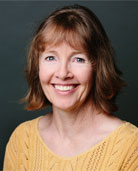The Moon Children - Summary
The Moon Children
Summary
The Moon Children (Red Deer Press, 2007) is a realistic fiction novel for ages 9 – 12 about a friendship between Billy, a boy with a fetal alcohol spectrum disorder, and Natasha, a Romanian orphan adopted to Canada.
The story takes place in North Battleford, Saskatchewan, where Billy is planning to enter a community talent show with his amazing yoyo routine. He and his dad have been practicing the tricks, but his father, an alcoholic, disappears and may not be able to return for the day of the contest—and Billy’s not convinced he can perform alone.
Natasha is Billy’s neighbor, and he notices her sitting on her front step keeping what he later learns is a moon journal—a daily record of the passing phases of the moon. Why the moon is so important to Natasha—and how Natasha becomes important to Billy—are two critical elements of the novel.
Natasha and Billy are imaginary characters who have disabilities similar to those of real children.
In 1990-91, 700 children from Romanian orphanages were adopted to Canada following the fall of the communist dictatorship in Romania. Many of these children had not been well cared for, and suffered from malnourishment and other conditions. Through the love and care of their adoptive families, the lucky ones, like Natasha, slowly recovered from many of their challenges.
Fetal Alcohol Spectrum Disorder (FASD), which is the name for Billy’s condition, is a disability caused by a mother’s drinking alcohol during pregnancy. It is generally thought that about one in a hundred children in North America are born with an FASD, and have a variety of physical and mental challenges depending on when and how much alcohol was consumed during their prenatal life. Although fetal alcohol conditions do cause permanent brain damage, it is important to remember that children born with this condition can have lots of potential. Billy, for example, is creative, artistic, and helpful to others.
The Moon Children, while engaging a young audience, has also been successfully used in adult literacy programs as well as rehabilitation clinics.
